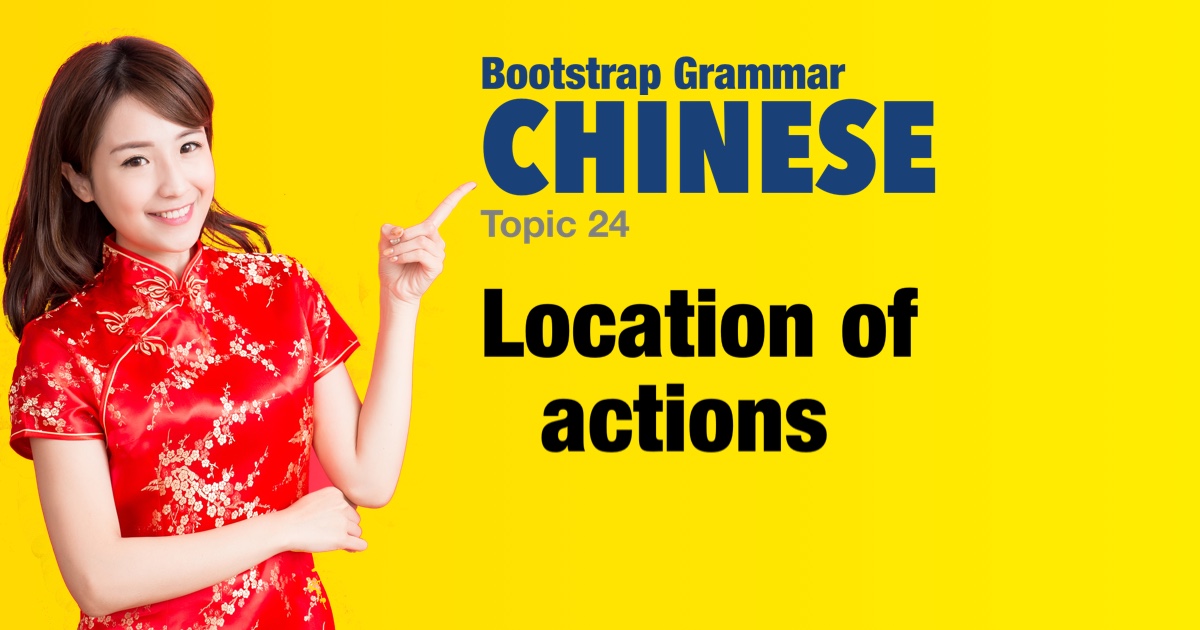Chinese grammar - Location of actions |
|||
|
|||
In Chinese the action that occurs at some location can be expressed by appending the action verb to the end of the prepositional phrase. When talking about location, the standard Chinese sentence structure is [subject] + [location] + [verb]. — Therefore, for example, 'I work in China' would be 'I' + 'located in China' + 'work' or 我 + 在中国 + 工作. |
| Examples: | |
|
我在中国工作。
wǒ zài zhōngguó gōngzuò. I work in China.
|
|
|
他在图书馆看书。
tā zài túshūguǎn kànshū. He reads books at the library.
|
|
|
我在门口等你。
wǒ zài ménkǒu děng nǐ. I am at the door waiting for you.
|
|
|
你在城市工作吗?
nǐ zài chéngshì gōngzuò ma? Do you work in the city?
|
|
|
我在房间里睡觉。
wǒ zài fángjiān lǐ shuìjiào. I sleep in the room.
|
|
|
你在公园里吃饭吗?
nǐ zài gōngyuán lǐ chīfàn ma? Do you eat in the park? |
|
|
孩子们在树下玩。
háizimen zài shù xia wán. The children play under the tree.
|
|
|
猫只在椅子上睡觉。
māo zhǐ zài yǐzi shàng shuìjiào. The cat sleeps only on the chair. |
|
|
狗在桌子下吃饭。
gǒu zài zhuōzi xià chīfàn. The dog eats under the table. |
|
|
书在桌子上吗?
shū zài zhuōzi shàng ma? Is the book on the table? |
|
|
孩子在房间里玩吗?
háizi zài fángjiān lǐ wán ma? Does the child play in the room? |
|
 |
|


 Literally 'I am in China work'
Literally 'I am in China work'
